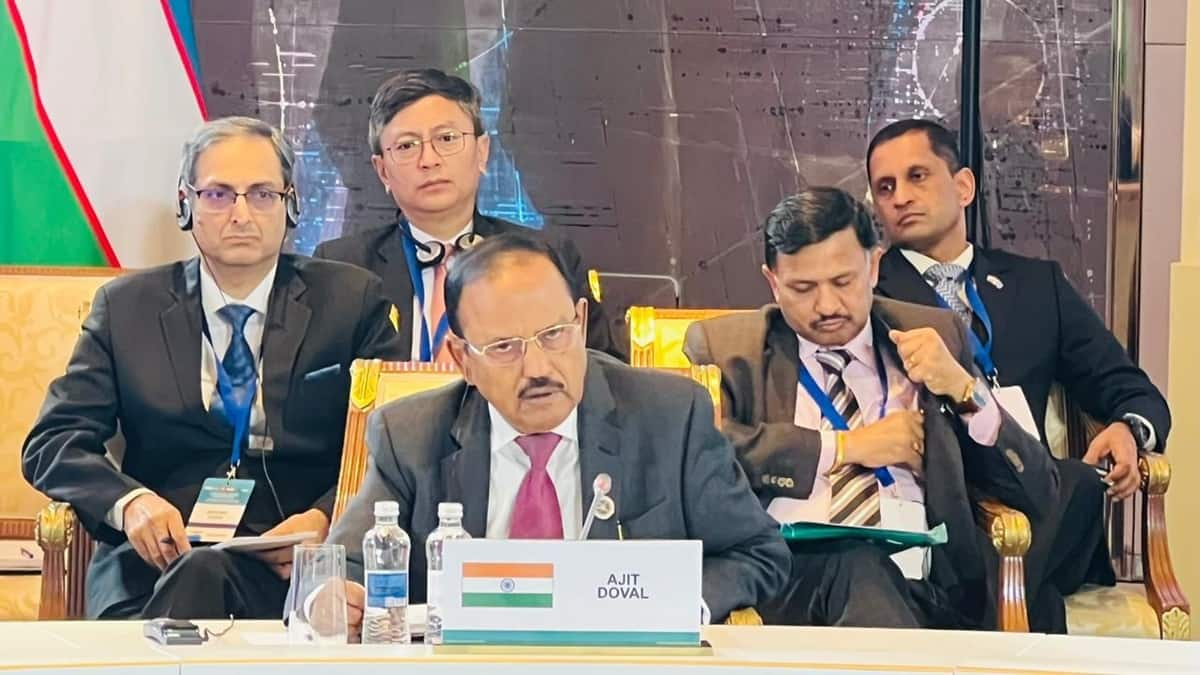India-Central Asia: Advancing Regional Collaboration and Security
At the Second Meeting of the India-Central Asia Secretaries/National Security Advisers of the Security Councils’ several vital aspects of the India-Central Asia relationship were highlighted.
On October 17, 2023, in Kazakhstan, National Security Adviser Ajit Doval, and National Security Advisers and Secretaries of the Republic of Kazakhstan, the Kyrgyz Republic, the Republic of Tajikistan, and the Republic of Uzbekistan were present. Turkmenistan was represented through its Embassy in Astana.
Furthermore, in his address Doval stated that both regions face shared security challenges and threats from malicious actors within interconnected networks, endangering the collective neighbourhood.
This meeting, according to sources, marked a significant milestone in fostering cooperative efforts between India and Central Asian nations. And was built upon the foundation laid during the first India-Central Asia Summit on January 27, 2022.
Connectivity
Connectivity and economic integration emerged as a central priority for India, recognizing that well-executed initiatives could strengthen ties, explained sources. Yet, it was emphasized that any efforts in this direction should prioritize consultation, transparency, and participation, while respecting the sovereignty and territorial integrity of each nation involved. Moreover, according to sources quoted above environmental considerations and financial viability should guide these initiatives to prevent them from becoming burdensome.
During the meeting the absence of direct land access between Central Asia and India was highlighted as an anomaly, stemming from a deliberate policy of denial by a specific country. It was underscored that this situation not only undermines the interests of that country but also hampers the collective well-being of the entire region.
According to sources, India’s membership in both the International North-South Transport Corridor (INSTC) and the Ashgabat Agreement was noted, with invitations extended to Central Asian neighbours to utilize the Chabahar port for maritime trade. “This initiative is set to expand further, with Uzbekistan and Turkmenistan poised to join the INSTC, encompassing all five Central Asian countries.”
Digital Payment Security & Digital Public Infrastructural
Addressing digital public infrastructure and payment security, India offered to provide the United Payment Interface (UPI), patented by its Central Bank, to Central Asian nations at no cost. This technology could help establish sovereign, real-time digital payment systems tailored to their specific needs, fostering commercial linkages and aiding medical travellers, businessmen, and Indian students in Central Asia.
Strategic Mineral Collaboration & Rare Earths Cooperation
In a bid to bolster strategic mineral collaboration, India proposed the creation of an India-Central Asia Rare Earths Forum, aimed at fostering partnerships in rare earth and strategic mineral domains. Such collaboration would be based on mutual benefit, transparency, and long-term objectives.
 Photo: MEA
Photo: MEA
Terrorism & Drug Trafficking
The ever-pressing issues of terrorism and drug trafficking were addressed, with a commitment to fully funded capacity-building programs in a range of areas to tackle these menaces effectively.
Cybersecurity
Cybersecurity cooperation was identified as a cornerstone of the relationship between India and Central Asia. India pledged to collaborate closely with Central Asian nations to bolster their defences against cyber threats, with an invitation extended to the Heads of the Cyber Security Agencies of Central Asian countries for a strategic cyber experience in India.
Afghanistan
The situation in Afghanistan remained a cause for concern, with shared priorities of providing humanitarian assistance, ensuring an inclusive government, combating terrorism and drug trafficking, and safeguarding the rights of women, children, and minorities. India’s active role in providing humanitarian aid was acknowledged, and the presence of the Afghan Cricket Team in India for ICC World Cup matches highlighted India’s support for sports in Afghanistan.
People to People Ties
People-to-people linkages and cultural ties were recognized as the strongest bonds between India and Central Asia. India proposed a seminar to foster deeper understanding of the history and context of Islam, contributing to peaceful coexistence and social harmony.
In a world beset by significant challenges, the meeting emphasized the value of dialogue as the primary means of resolving differences and disputes, with diplomacy at its core. India’s commitment to deep, meaningful, and sustainable engagement with Central Asian nations was reaffirmed, and the proposals presented by India to strengthen India-Central Asia linkages were appreciated by the participating Central Asian countries.
The meeting underscored the importance of regular dialogue between the Security Councils of the participating countries, given the common challenges of terrorism, extremism, and radicalization in the region. It was agreed that the third meeting of the India-Central Asia National Security Advisers/Secretaries of the Security Councils would be held in the Kyrgyz Republic in 2024, further cementing the commitment to regional security and cooperation.
